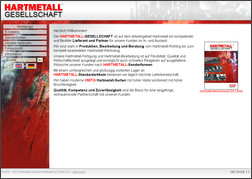Lautsprecher-Odyssee und Duetta Selbstbau
Posted on 2007-04-18 19:00 by Timo Bingmann at Permlink with 23 Comments. Tags: #hifi selbstbau
Zusammenfassung
In diesem Blog-Eintrag beschreibe ich meine drei-monatige, intensive Suche nach neuen Lautsprechern. Der Eintrag enthält viele persönliche Meinungen und soll insbesondere zu der Zeit angestellte Überlegungen und Vermutungen erfassen. Dieser Bericht soll sein, was ich in damals vergeblich im Internet gesucht habe: eine detaillierte Entwicklung von völlig unerfahrenen Musikhörer zum Boxen-Selbstbauer. Der ganze Bericht ist natürlich subjektiv, manch Suchender wird völlig anderer Meinung sein.
Die Suche startet im letzten Dezember bei den einschlägigen Elektronikmärkten. Mit den bekannten Test-Magazinen bewaffnet, hätte ich dort um Haaresbreite ein Paar Lautsprecher gekauft. Durch Zufall kamen wir dann zu Orbid-Sound und durften dort begeistert alles probe hören und sogar zwei Paar Lautsprecher ausleihen. Am Ende landete ich jedoch beim HiFi-Selbstbau. Nach langem Vergleich der verschiedenen im Internet verfügbaren Bausätze entschied ich mich zu Udo Wohlgemuth nach Bochum zu fahren und dort zwei Duetta-Bausätze zu kaufen.
Die zehntägige Bastelarbeit an dem Paar Duettas hat mir sehr viel Spaß gemacht. Hier werden die einzelnen Schritte nur kurz beschrieben aber durch viele Photos illustriert. Besonderes Augenmerk legte ich auf die Schwierigkeiten, welche ich damals als totaler Selbstbau-Neuling überwinden musste. Der Blog-Eintrag endet mit einer differenzierten Beschreibung des Klangs meiner Duettas.


